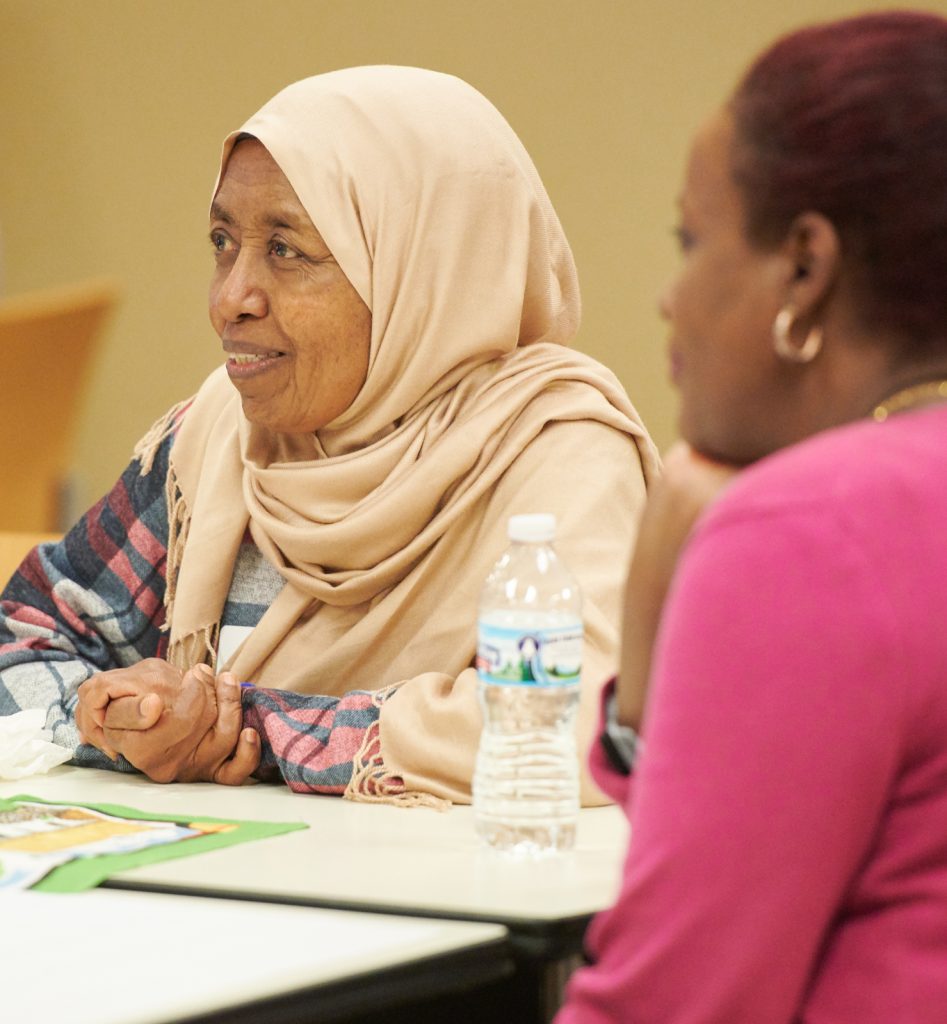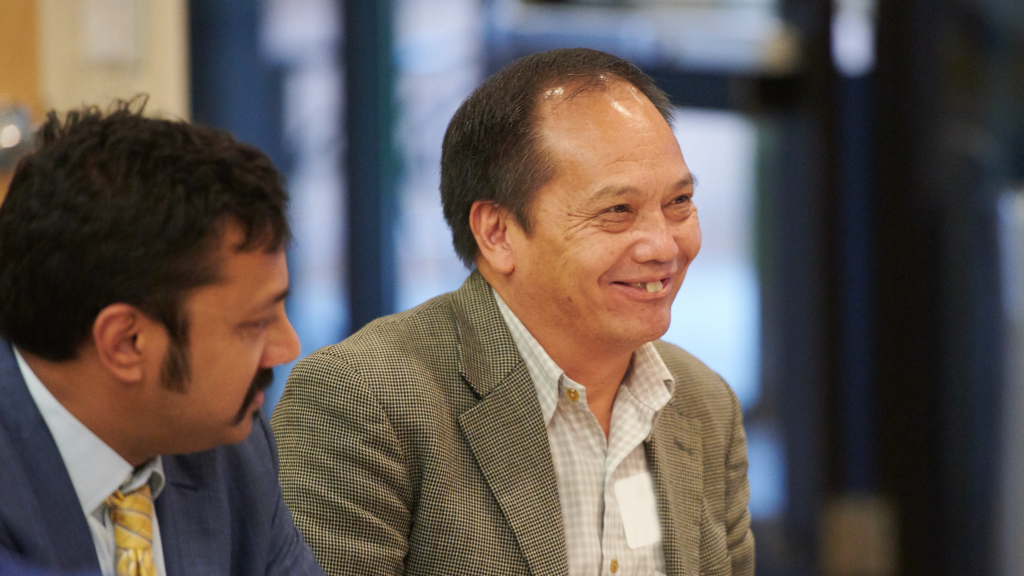By: Tammy Sinkfield-Morey, DNP, RN, PHN, CRRN, EFMN Professional Advisory Board Member
The Epilepsy Foundation of Minnesota (EFMN) committed to fully integrate the ideals of diversity, equity, and inclusion into its mission. This is a commitment to embrace standards of “fair treatment, access, opportunity, and advancement for all people, while at the same time striving to identify and eliminate barriers that have prevented the full participation of some groups” (Code for America, 2020).
Further, EFMN identified “We will connect with more communities” as one of its pillars for the 2018-2020 strategic plan, Rise Beyond. To realize this specific strategic pillar, EFMN contracted with Anne Phibbs and Antonia Wilcoxon of Strategic Diversity Initiatives to facilitate an event called “Community Conversations,” held September 26, 2019, and designed to be the first of many. The established goal of the conversation was:
To engage members of communities of color and Native communities in a well-designed and inclusive conversation about what EFMN does and how EFMN can better serve communities of color and Native communities. The primary goal is to create connection and community and better educate all those involved – about epilepsy and about the needs of people of color and Native people relative to epilepsy.
At this event of approximately 35 participants from a diverse array of communities in the Twin Cities, there was a healthy dialogue about perceptions of epilepsy itself, and of EFMN in communities of color and Native communities. This evolved into a rich and much-needed discussion about what it will take for EFMN to fully serve underserved communities in all of the foundation’s work. This Community Conversation was just a first step in a commitment to diversity, equity, and inclusion (DEI). The knowledge gained from these conversations are the foundation for the development of EFMN’s strategies for moving forward in a more culturally competent way.
Some of the resulting initiatives and actions taken since the Community Conversation gathering include:
- Hosted information tables at Latinx community events.
- Expanded seizure recognition and response offerings to immigrant communities.
- Extended access to childcare at larger events for broader and more diverse participant attendance.
- Established the DEI Board Subcommittee and hosted an inaugural meeting in January 2020.
- Nikki Baker, Program Director, participated in the National Organization’s Emotional Health Initiative subcommittee.
- Three employees’ core work now incorporates cultivating and championing DEI efforts.
- Added DEI work to the job descriptions for all program staff members.
- Provided more comprehensive DEI educational training and experiential opportunities for staff.
- Began preparations for hosting the next community conversation in Fall 2020.
Activities in progress or scheduled to begin in 2020 include:
- Create a diversity statement for EFMN by the DEI Board subcommittee.
- Expand networking and outreach with communities of color and Native communities throughout more Minnesota areas.
- Focus renewed intention and services within identified underserved individual communities and their local community clinics.
- Design and construct improved data collection, metrics, and tracking to assist in better serving those impacted by epilepsy.
Additional opportunities that emerged directly from the voices of participants include:

- Knowing more stories about the stigma, shame, fear, and misunderstanding that exists in different communities regarding epilepsy.
- Identifying and educating “champions” within particular communities who can serve as bridges between the medical community and their respective cultural communities.
- Implementing authentic and respectful processes to build trust between community leaders, community members, and those doing the work around epilepsy.
- Establishing partnerships among community providers, community organizations (i.e., schools, cultural centers, meeting groups, wellness facilities), community leaders, and community members to disseminate information about epilepsy and EFMN into communities of color and Native communities.
- Providing opportunities for EFMN and epilepsy care staff to learn about and educate themselves on the values and cultures of different communities.
- Providing continuous exposure to the work of EFMN and information about epilepsy within communities of color and Native communities.
Our charge is clear, our work is formidable, and we have accepted responsibility. The Epilepsy Foundation of Minnesota has been an unwavering ally for individuals and families whose lives are impacted by epilepsy and seizures. Adopting the integrity of diversity, equity, and inclusion principles ensure that all people who experience seizures have a chance to live their lives to their fullest potential.
Below are the driving commitments for continued participation and efforts in DEI initiatives to help EFMN connect with more communities in every minute, of every day, throughout every year, in every space.
Commitment to Diversity
A commitment to diversity means we acknowledge and appreciate all the ways in which people differ. We recognize that each person is unique, and encourage individual differences in perspectives, identity, and points of view to be evident in a safe, positive, and nurturing environment.
Commitment to Equity
A commitment to equity ensures that everyone has what they need for their well-being, and it ensures the absence of socially unjust disparities. A commitment to equity means eliminating barriers that have prevented the full participation of some groups or people through an unwavering commitment to impartial treatment, access, opportunity, and advancement for everyone.
Commitment to Inclusion
A commitment to inclusion ensures all people feel welcomed and valued, and are fully able to participate, have their differences respected, and their basic needs met. An environment that is inclusive is one that embraces differences and offers respect for all people in words and actions.
Healthcare work should not be considered fully adequate unless it is guided by these commitments.
References
Code for America. (2020). Defining diversity, equity, and inclusion. Retrieved from https://www.codeforamerica.org/diversity.
